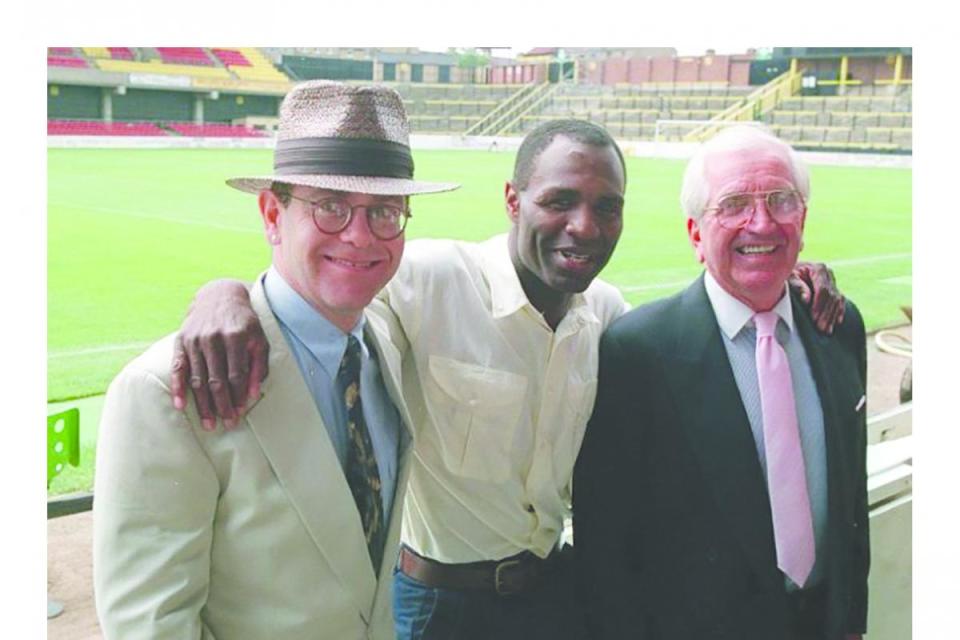Former Watford chairman Jack Petchey dies

Former Watford FC owner and chairman Sir Jack Petchey has died at the age of 98.
The London businessman brought the Hornets from Elton John in the summer of 1990 and remained at the helm for almost seven years, until Sir Elton returned as chairman with a consortium of investors in April 1997.
Sir Jack passed away today at his home in Wapping and the Jack Petchey Foundation announced his death in a statement with the following tribute.
It read: “From humble beginnings, Sir Jack left school aged 13 without any qualifications. Through his entrepreneurial spirit he became one of Britain’s most successful businessmen.
"This enabled him to achieve his ambition of giving young people the opportunities and confidence he lacked as a child. As he always told young people “If you think you can, you can”.
“His charitable trust, The Jack Petchey Foundation, has to date invested over £170 million in youth projects.
“Messages have already started pouring in from the young people and families whose lives he touched.”
Sir Jack's time at Vicarage Road is not remembered fondly by many Watford fans because of a "dogged loathing of spending money he didn’t have" but writing in an issue of Yellow, Black & Red!, the Watford Treasury's Colin Payne contended his place in Hornets' history deserves greater recognition.
It is with great sadness that we announce the death of Sir Jack Petchey CBE. Our thoughts and sympathies are with his family and friends.
If you would like to write a message in memory, please post it here or directly on our dedicated in-memory page: https://t.co/SDk0isyg7a pic.twitter.com/KNE7bV5qZ0— Jack Petchey Fdn (@JPFoundation) June 27, 2024
Sir Jack's time at Vicarage Road is not remembered fondly by many Watford fans because of a "dogged loathing of spending money he didn’t have" but writing in an issue of Yellow, Black & Red!, the Watford Treasury's Colin Payne contended his place in Hornets' history deserves greater recognition.
You can read Colin full article, republished on this website in October 2022, via this link.
He wrote: "He (Sir Jack) did probably more than any other Watford owner in history in developing the ground – he created a future for Watford Football Club through bricks and mortar, one which would have a continued impact long after that eventual relegation in 1996.
"History (as well as some of my closest Hornet-supporting friends) still does not regard Petchey fondly. His policy of selling the family jewels whenever the price was right saw potential exchanged for struggle, and he did little to endear himself to what was by then Watford’s diehard core support. Yet he was fondly remembered by both Glenn Roeder and Steve Perryman, young managers who had both worked under his frugal budgets but knew they would be backed by the chairman, allowed to get on with their job, and that when sales had to come, most prominently in the form of Paul Furlong and Bruce Dyer, at least some of the resulting cash would be made available for replacements.
"When he did depart it was with a repaid seven-figure debt in his linen-jacket pocket, one which Elton paid willingly in order to wrest control back, yet had ultimately written off himself when Petchey had taken over half a dozen or so years earlier. Yet what Jack left behind was a Vicarage Road for the future. Three shiny stands where decay had resided previously. Yes, the Vicarage Road end was ‘functional’ in the extreme, but Watford had the foundations in place to one day return to the top table and have a ground able to host Premier League football."

 Yahoo Sport
Yahoo Sport 






































